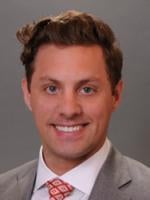During the ongoing COVID-19 pandemic, the U.S. has experienced a troubling rise in alcohol consumption with parallels to an increased number of individuals struggling with alcohol use disorder (AUD). Enter a new wave of telemedicine-based virtual AUD treatment providers that reach providers and patients in a uniquely modern way.
The National Institute on Alcohol Abuse and Alcoholism defines AUD as “a medical condition characterized by an impaired ability to stop or control alcohol use despite adverse social, occupational, or health consequences.” While AUD currently receives less media coverage than the opioid epidemic, the issue is important to millions of people struggling with issues related to alcohol misuse. Studies estimate at least 1 in 20 U.S. adults meet the diagnostic criteria for AUD, yet only a small percentage of those with AUD actually receive treatment, and numerous barriers may explain this gap in treatment.
Traditional Alcohol Treatment Programs
While providing essential care, traditional facility-based treatment remains inaccessible for many, as it can be expensive, inconvenient, or require extended residential stays at a brick-and-mortar facility. Social stigma associated with “rehab” often hinders those seeking help, and people are reluctant to take weeks or more away from work and family. Compounding the impact of that limited availability of facility-based care are primary care physicians or emergency providers who, according to some researchers, may be unfamiliar with effective AUD treatment options. This often results is attempts to use self-help programs, faith-based associations, or mere “force of will” rather than modern evidence-based treatment modalities.
Telemedicine-Based Alcohol Treatment Services
As demand continues to rise for accessible treatment options, virtual-only AUD treatment programs specifically tailored toward alcohol cessation or moderation, are using telehealth technology to serve patients in new settings and new ways. Because these virtual service programs are not constrained by brick-and-mortar restrictions, individuals can obtain treatment on their own terms and from the privacy of their own home. Virtual AUD programs tend to focus on creating customizable treatment plans that vary based on the individual’s specific goals, needs, and preferences (e.g., combinations of medication-assisted treatment which utilizes both pharmacology and psychotherapy, group counseling, peer support, behavioral therapy, digitized adherence and accountability software, chatbots, and post-discharge services to prevent relapse).
Emerging studies are demonstrating the benefit of telehealth in AUD treatment, revealing how virtual care interventions, and even chatbots, are associated with reduced substance use and are an effective alternative, especially when access to treatment is otherwise limited and patients are “waitlisted” resulting in a delay of necessary and sometimes time-sensitive care.
New White Paper on Telehealth Solutions for AUD
To that end, a new white paper, “Addressing a Crisis: How Evidence-Based Telemedicine Can Treat Unhealthy Alcohol Use,” has been published to help inform health plans, emergency providers, primary care practitioners, and inpatient treatment facilities on the key benefits and issues to consider in connection with telehealth-based AUD treatment services.
Noting these promising results, health plans have expressed interest to get involved by partnering with, or investing in, virtual AUD treatment programs. This is done both as an added member benefit and to help cut costly emergency department visits or inpatient treatment programs.
Complicated Legal Landscape Creates Barriers, but Opportunities Abound
From a legal standpoint, states closely (and importantly) regulate substance use disorder (SUD) treatment services, including AUD treatment, due to the often fragile nature of the patient population. States vary on their regulatory approach, including whether state licensure or certification is required. If licensure is required, the process is complicated: it generally includes on-site surveys, creating extensive policies and procedures, and ensuring ongoing compliance with extensive regulatory requirements.
Despite the barriers to entry, there are legal, compliant solutions that can be scaled across multiple geographies, allowing patients to receive these important services, even if their access to traditional treatment programs is more limited (whether due to rural locations, COVID concerns, affordability, or social determinants of health). Further, state regulators have expressed great interest in adapting and updating any regulations to better promote and accommodate virtual-only treatment models.




 />i
/>i

